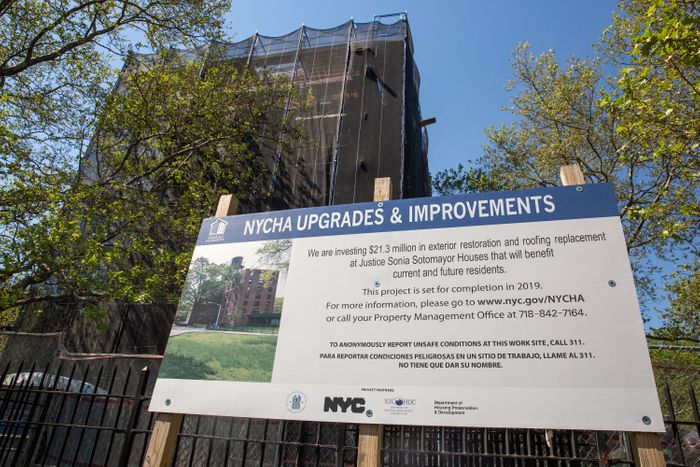Meet NYCHA’s overtime king: a $315,000 plumber

The Justice Sonia Sotomayor Houses in The Bronx. Photo: Ben Fractenberg/THE CITY
 This story was originally published on May 13, 2019, by THE CITY.
This story was originally published on May 13, 2019, by THE CITY.
It appears that 2018 proved a very busy year for Vincenzo Giurbino, a plumber with the New York City Housing Authority.
The 65-year-old city worker’s payroll numbers indicated he put in an average 16-hour day every single day he worked — reaping him more than $300,000 in salary and overtime.